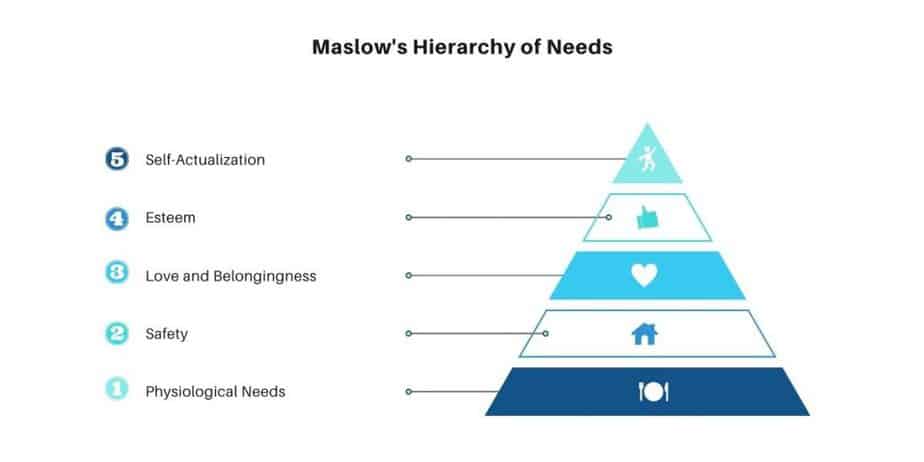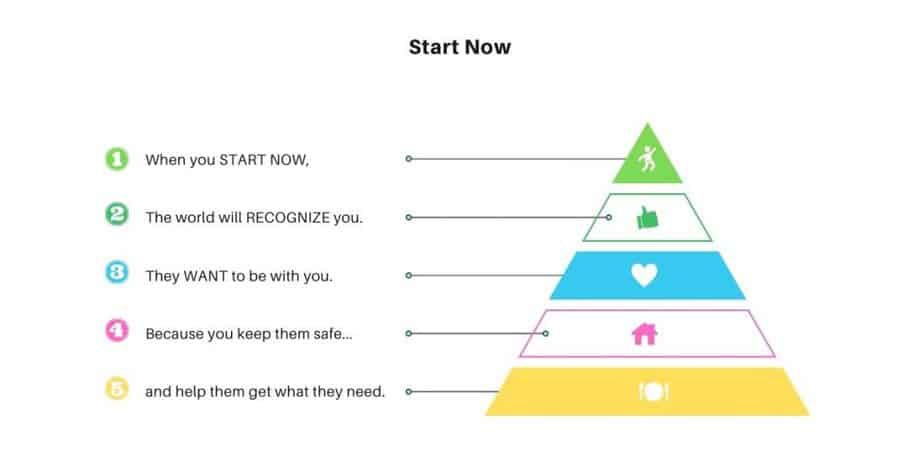In a 1954 book titled Motivation and Personality, Americal Psychologist Abraham Maslow proposed that five core needs form the basis for human behavioral motivation.
In many Philippine schools, Maslow’s theory on the hierarchy of needs is foundational to any personality development study.
Maslow’s theory presents his hierarchy of needs in a pyramid shape, with basic needs at the bottom and high-level, intangible needs at the top.

A person can only move on to addressing the higher-level needs when their basic needs are adequately fulfilled.
Many gurus accepted this theory hook, line, and sinker because it is the most common-sense explanation for why most people don’t reach self-actualization.
Good thing that many successful people go beyond common-sense. They create and design the life they want.
Physiological needs. The first of the lower needs on Maslow’s hierarchy are physiological needs. These basic human survival needs include food and water, sufficient rest, clothing and shelter, health, and reproduction.
Maslow states that one needs to fulfill psychological needs before moving to the next level.
Safety needs. Next among the lower-level needs is safety. Safety needs include protection from violence and theft, emotional stability and well-being, health security, and financial security.
Love and belonging needs, The social needs relate to human interaction and are the last of the so-called lower needs. Among these needs are friendships and family bonds—both with biological family (parents, siblings, children) and chosen family (spouses and partners).
Esteem needs. Esteem needs encompass confidence, strength, self-belief, personal and social acceptance, and respect from others. Fulfilling esteem needs is a critical stage in achieving contentedness or self-actualization.
Maslow notes that there are two types of self-esteem: (1) respect and acknowledgment from others and (2) self-acceptance.
Self-actualization needs. Self-actualization is the final stage of development. This stage occurs when a person can take full advantage of their talents while still being mindful of their limitations.
Maslow believes that only 1% get to self-actualization.
Why Talk About Maslow’s Hierarchy of Needs
I believe that Maslow’s Theory of Needs sounds like common sense because few of us dare to question the wisdom of the American psychologist.
But when we consider the achievements of successful people, we’ll quickly discover that they did not care about Maslow’s pyramid.
Personal development isn’t about moving up from 1 to 5. On the contrary, many achievers have shown that the lower levels follow by paying attention to level 5.
I have written about this at Start Before You Are Ready. I invite you have read that too before you continue.

Aspects of Personal Development
Personal development is a holistic approach. Though most training programs focus on developing a singular skill, I found it more impactful when you consider growth in every area: physical, social, financial, intellectual, emotional, and spiritual. Learn more about the six aspects of personal development.
If your team is stuck in meetings, misalignment, or slow decisions…
Let’s design one shift they can use immediately.
→ Shift Experiences


